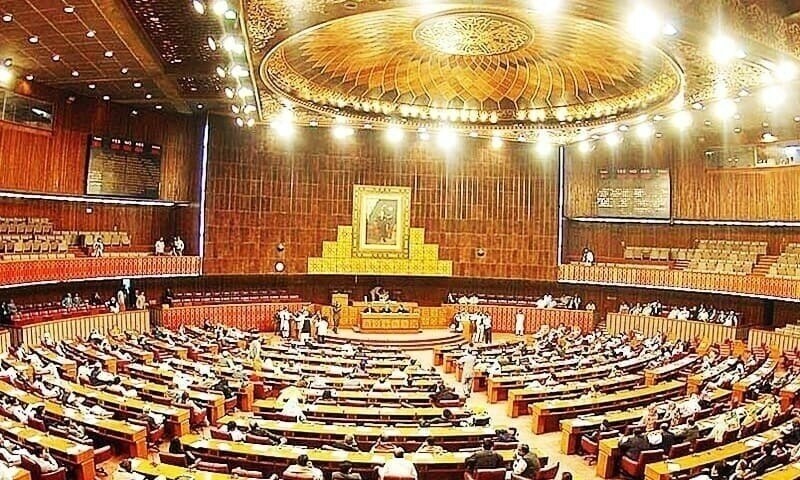Saturday, Oct 25, 2025 | 02 Jumada Al-Awwal 1447
Saturday, Oct 25, 2025 | 02 Jumada Al-Awwal 1447

ISLAMABAD: The National Assembly’s Standing Committee on Poverty Alleviation and Social Safety lauded the Pakistan Bait-ul-Mal’s (PBM) extensive relief efforts for 70,000 flood-hit families and reviewed progress on the Benazir Income Support Programme’s (BISP) new digital wallet initiative aimed at the financial inclusion of 10 million beneficiaries.
The committee met with MNA Mir Ghulam Ali Talpur in the chair at the Parliament House on Friday. The committee discussed ongoing poverty alleviation programmes, including updates on the 2025 flood relief response and financial inclusion initiatives.
Officials informed the committee that PBM had utilised Rs 1.93 billion during the 2024–25 fiscal year for welfare projects, including cochlear implants, educational scholarships, medical treatment, and assistance for persons with disabilities. The PBM also sought an increase in its budget for the next fiscal year to expand outreach. The committee agreed to support a formal proposal for enhanced funding, urging the government to prioritise the request.
Briefing the committee, representatives of PBM highlighted that the organisation had extended assistance to 70,000 families affected by the 2025 floods. The relief package included medicine kits, animal feed, tents, and other essential supplies, distributed through PBM’s regional offices in coordination with district administrations.
Despite lacking a formal disaster response mandate, the PBM had “gone beyond its usual duties” to serve the affected population, members noted. The committee commended PBM’s management for its “remarkable dedication” and effective use of resources.
Meanwhile, the Secretary Benazir Income Support Programme (BISP) reported that 10 million digital wallet accounts had been opened in collaboration with six banks, with full activation expected by November 17, 2025. He said that it would be expended in the future. The system will enable beneficiaries to receive funds directly through the State Bank’s RAAST platform, while the German Agency for International Cooperation (GIZ) will provide financial literacy training to help beneficiaries manage their accounts effectively.
To lower costs, BISP is creating a unified linkage system to eliminate transaction fees while discussing terms with the State Bank to exempt beneficiaries from certain activation or transfer fees imposed by NADRA. After this phase, BISP will shift to overseeing operations to ensure sustainability. The committee emphasized the need for strict timelines and clear results, noting that success lies in actual delivery rather than just plans.
The Secretary said that the BISP reported that no overseas travel expenses were incurred by its staff during 2024–25, reflecting prudent use of public funds. Recognized internationally as a leader in cash transfer programmes, BISP’s socio-economic registry and social protection systems have drawn global praise and inspired similar initiatives abroad.
He said that the programme has also partnered with the Shaheed Benazir Bhutto Foundation to train 3,000 women in vocational skills, helping them move toward financial independence.
The Officials noted that BISP’s robust payment network, already used by provincial governments for direct cash transfers, has become a vital support mechanism during emergencies.
The BISP is now introducing climate-adaptive measures to build long-term resilience. The committee reaffirmed its commitment to strengthening social safety nets through innovation and fair support for Pakistan’s most vulnerable communities.
The committee emphasised timely implementation and measurable outcomes, stressing that “the real test lies in delivery, not in planning.”
The meeting was attended by committee members, the Minister for Poverty Alleviation Syed Imran Ahmed Shah, and senior officials from PBM and BISP.
Copyright Business Recorder, 2025